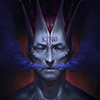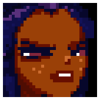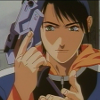- Ответов 3,1 тыс
- Просмотры 445,6 тыс
- Создана
- Последний ответ
Топ авторов темы
-
Nastanados 339 постов
-
Keishiko 176 постов
-
Maeghgorre 166 постов
-
+postal+ 106 постов
Популярные дни
Популярные посты
-
Новый тизер:
-
То что он волк одиночка не делает его безмозглым убийцей, которому на всех плевать.И откуда у Гатса после такого взяться положительному отношению к банде ястреба? Зритель не увидит развития отношений
-
20 лет, ДВАДЦАТЬ ЛЕТ между первым и вторым сезоном. И после этого фанаты Шерлока мне будут втирать, что видите ли тяжело ждать нового сезона три года, когда предыдущий закончился на самом интересном м
Рекомендуемые сообщения
Последние посетители 0
- Ни одного зарегистрированного пользователя не просматривает данную страницу










Заметил. что на форуме до сих пор нет темы, посвященной моему любимому аниме. Посему создаю.
Как оно вам?
http://www.thehawks.org/hawks/bt/index.php?dir=.%2FBerserk - тома 4-30, скачка по протоколу BitTorrent
http://www.evil-genius.us/?cat=3 - перевод последних глав, скачка по протоколу BitTorrent.
http://www.mangatraders.com/search/?s=berserk - все тома + свежие главы (требуется регистрация)
http://www.berserkworld.org/manga.html - русский перевод манги: 1-5 + 13-24 тома (перевод продолжается)
http://skullknight.net/final.html - без лишних слов, просто лучшее сообщество по Берсерку.
http://www.berserkchronicles.com/ - хороший итальянский фансайт, отличная галерея официального и фанатского арта.
http://www.thespectrum.net/berserk.shtml - весьма информативный сайт по Берсерку.
ссылки предоставил Flash Gordon
ВАЖНО:
если вам интересно, что было дальше, после того, как закончилось аниме, то читайте мангу, все что дальше, оно было в ней
Изменено пользователем Uola (смотреть историю редактирования)
Совершенноваш Тсарь (Гриффис)
[Losers Team] [zoomdvich team] [Лисий Ийадъ team]
I wish I was special